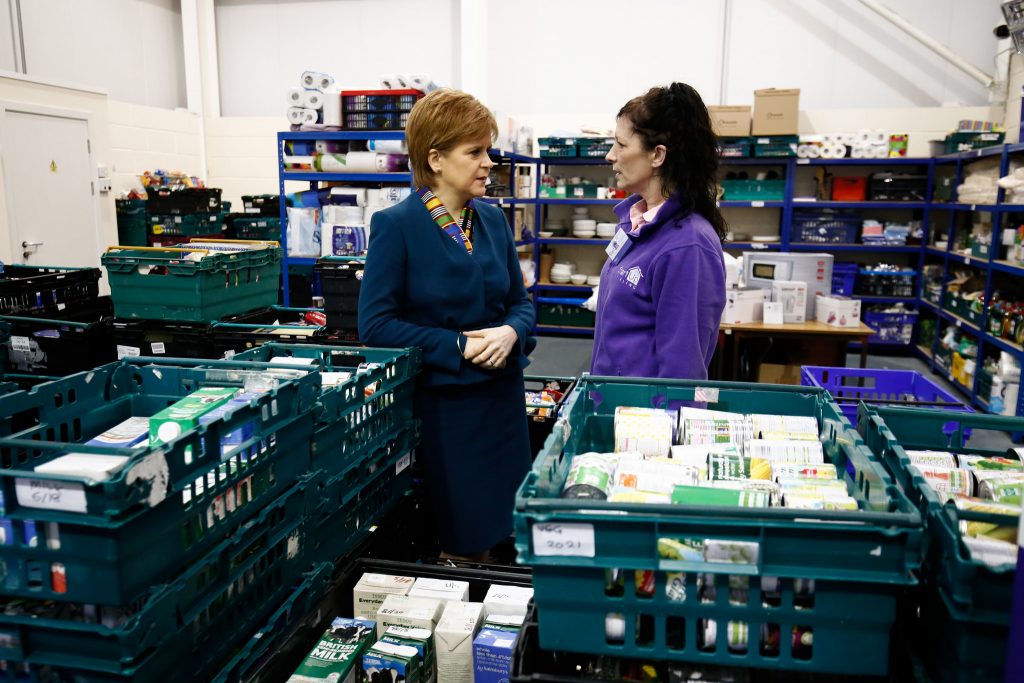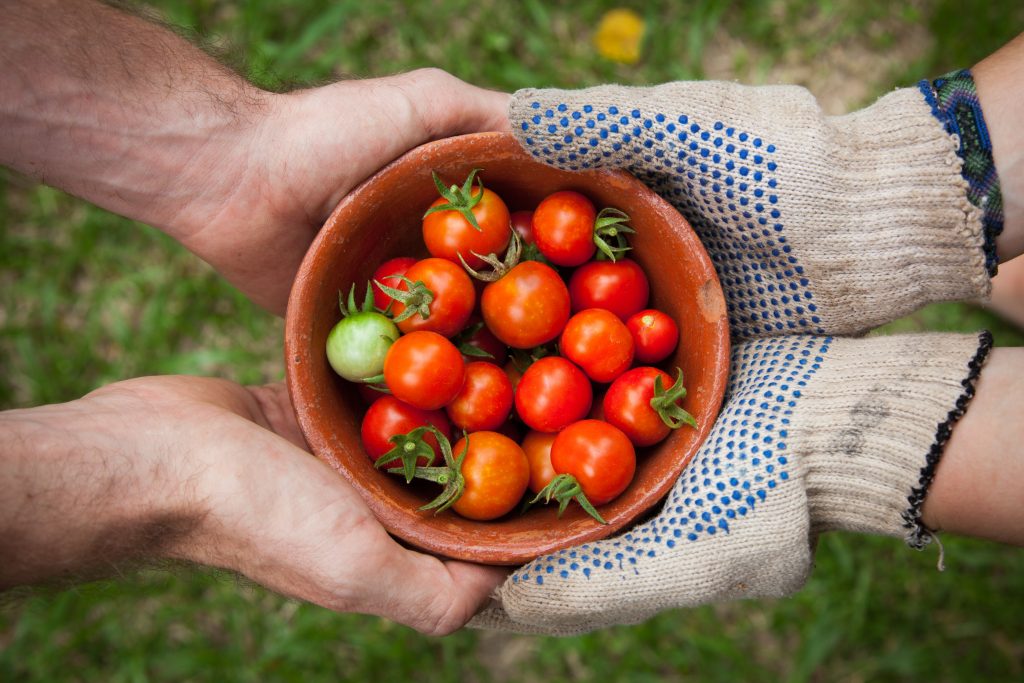A parliamentary committee has urged the government appoint a dedicated Minister For Hunger to tackle escalating levels of food poverty, food insecurity and malnutrition that is having a devastating impact on children in one of the richest countries in the world.
In a report published today, the Environmental Audit Committee has called for the appointment of a new minister ‘with responsibility and accountability for combatting hunger and food insecurity within the UK’ to address that nearly one in five children (19%) in the UK who are going hungry.
The committee believes the minister’s remit should involve addressing the scale, causes and impact of hunger, food insecurity and malnutrition in the UK and, crucially, getting to grips with food insecurity levels that are ‘amongst the worst in Europe’.
The report notes that the issue of hunger and food insecurity has ‘fallen between the cracks’ because there is ‘no ministerial accountability for combatting hunger in the UK.’
The report also describes the government as turning a ‘blind eye’ to the issue, stating, ‘We are concerned at the Government’s turning a blind eye to UK hunger and its lack of progress in measuring and acting on hunger, food insecurity and malnutrition in the UK.’
Committee Chair: ‘Scandal that Nearly One in Five Children Live in Families that Struggle to Put Food on the Table.’
Food insecurity in the UK is significant and growing and is among the worst in Europe.
Today we have published a report calling for the Government to appoint a Minister for Hunger to tackle its failure on the issue.
Read it here: https://t.co/Djw1FkZzue pic.twitter.com/GLqeSAvLbZ
— Environmental Audit Committee (@CommonsEAC) January 10, 2019
Mary Creagh MP, chair of the cross-party Environmental Audit Committee, said it’s a ‘scandal’ that children are going to bed hungry in 21st Britain.
The Labour MP for Wakefield said: “No child should go to bed hungry in the UK, so it’s a scandal that nearly one in five children live in families that struggle to put food on the table making us one of the worst countries in Europe for hunger and malnutrition.”
Cuts to local services like meals on wheels means elderly people are at high risk of malnutrition
Mary Creagh MP, chair of the cross-party Environmental Audit Committee
“Some families struggle with debt or changes to benefits or the introduction of Universal Credit or simple lack of wage growth over the last ten years. And in other places cuts to local services like meals on wheels means elderly people are at high risk of malnutrition. The government has promised to end hunger by 2030 – it’s one of the United Nation’s Development Goals that they’ve signed up to but have so far failed to deliver on this promise. That’s why we’re calling on them to appoint a Minister for Hunger to set out a clear road map, measurements and monitoring, to end the scourge of hunger in 21st century Britain.”
The report comes in the same week that the Shadow Minister for Children and Families, Emma Lewell-Buck MP rebuked government policies that have led to 14 million people living in poverty and facing food insecurity.
Trussell Trust: “It’s not Right that Anyone in our Country faces Hunger, and it’s not Inevitable.”
 Scottish First Minister Nicola Sturgeon visiting a food bank in Stirling Credit: First Minister of Scotland Flickr
Scottish First Minister Nicola Sturgeon visiting a food bank in Stirling Credit: First Minister of Scotland Flickr
The Trussell Trust, which runs the largest network of food banks in the UK, backed the Environmental Audit Committee’s report and findings, tweeting,”We fully support @CommonsEAC call for a Minister for Hunger and a measurement of food insecurity.”
In response to the report, Trussell Trust chief executive Emma Revie said, “We fully support the Committee’s call for a Minister for Hunger and a measurement of food insecurity. A failure to address the root causes of poverty has led to soaring need for food banks, with more than 1.3 million food parcels provided to people by our network last year. It’s not right that anyone in our country faces hunger, and it’s not inevitable.
A failure to address the root causes of poverty has led to soaring need for food banks, with more than 1.3 million food parcels provided to people by our network last year
Trussell Trust Chief Executive Emma Revie
“It’s time for the government to take concrete steps towards a UK where everyone has enough money for food. Although food bank volunteers are providing vital support to those in crisis, no charity can replace people having enough money for the basics. To end hunger, we need to understand the true scale of the challenge, and work across government to ensure everyone is anchored from being swept into poverty.”
Government: Since 2010 One Million Lifted Out of Poverty
 Credit: Maria Elena Zuniga Unsplash
Credit: Maria Elena Zuniga Unsplash
A spokeswoman for the Department of Work and Pensions told BBC News that since 2010 one million people had been lifted out of absolute poverty – including 300,000 children.
“Household incomes have never been higher and the number of children living in workless households is at a record low, but we know there’s more to do ensure that every family has access to nutritious, healthy food,” she said.
“We already provide support through free school meals and our Healthy Start Vouchers.”
Do we Have a Right to Food?
 Credit: Ecasap Unsplash
Credit: Ecasap Unsplash
Our right to food is protected by a number of international standards, including Article 25 of the Universal Declaration of Human Rights and Article 11 of the International Covenant on Economic, Social, and Cultural Rights.
In theory, states are required to “progressively” realise the rights enshrined in the International Covenant on Economic, Social, and Cultural Rights. In other words, unlike the International Covenant on Civil and Political Rights, which requires states to immediately realise the rights enshrined in the treaty, states are required to ensure economic, social and cultural rights (such as the right to food) only “to the maximum of its available resources”.
The idea is that developing states that may genuinely be unable to provide food for everyone, until they can build up their economic resources, should not be penalised under international law.
However, in a wealthy, developed state like the UK, the government can hardly argue that it cannot afford to provide all individuals in its jurisdiction with basic nutrition.
Featured image: Mary Creagh MP
Credit: Wikimedia Commons







